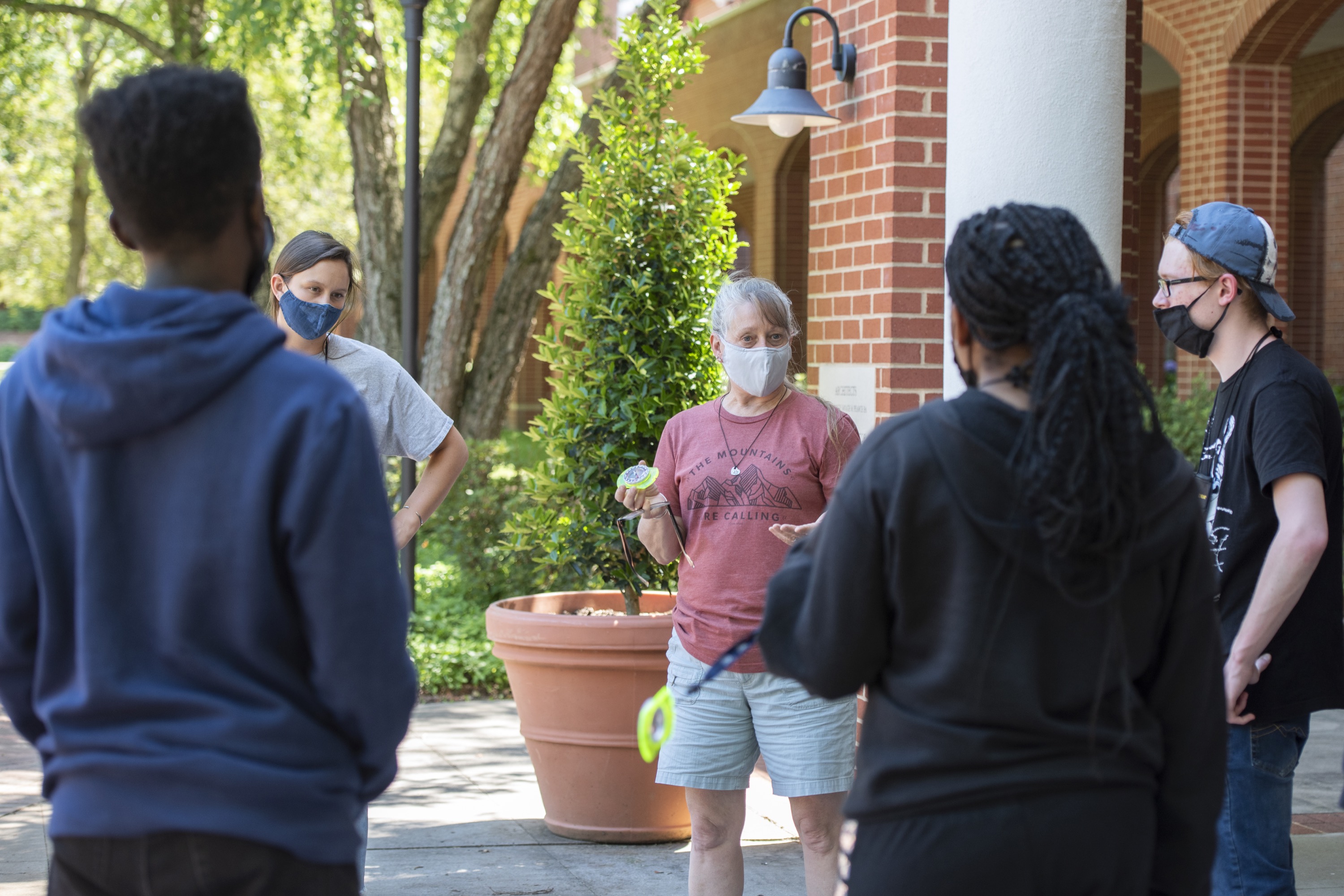A modified two-week program offered these Alamance-Burlington School System high school students the opportunity to participate in academic seminars, gain insights into the college application process and offer each other support.
Following an academic year dominated by Zoom calls and remote learning, Elon Academy scholars were able to reconnect on Elon’s campus in June through academic seminars, college readiness workshops and peers support groups designed to build relationships and personal connections.
The Elon Academy partners with local students and their families starting at the end of their first year of high school and continues this partnership through high school, the completion of an undergraduate degree and even on to the pursuit of graduate studies. The students served are from families without a history of college and with a financial barrier to pay for college.

For Dillon Page, a rising senior at Eastern Alamance High School, Elon Academy offers him the opportunity for personal growth as he learns how to navigate the college application process and expands his academic horizon. “My experiences in groups and interactions at Elon Academy have raised my confidence level in talking to people,” Page said during the summer program. “Elon Academy provides information that makes the application process for college easier to understand.”
From June 14 to 25, Nearly 70 Alamance-Burlington School System high school students who participate in the program gathered each weekday in the Koury Business Center and elsewhere on campus for the academy’s summer program. Typically a four-week residential program, the summer session for the Elon Academy had to adapt this year to accommodate changing conditions related to the COVID-19 pandemic, which kept the academy from hosting many its typical in-person sessions throughout the school year.
Elon Academy Director Terry Tomasek said planning for this summer’s program took into account health and safety concerns as well as the desire to foster in-person connections and to move forward with college planning work, which can be so critical to these students and their families.
New this year were peer group sessions to start the day and again before lunch that provided the opportunity for students to connect with each other across cohorts as well as to talk about and process all they have been through since the start of the pandemic.
“We knew coming into this summer that we had to look at the experience hour students have had during the past 18 months, and the fact there hasn’t been much positive,” Tomasek said. “We knew our students emotionally and mentally were probably less well off than maybe a year ago. We determined we didn’t want to push that under the rug. We couldn’t ignore it, and we needed to hit it head on.”
With many students not returning to in-person learning until this spring, the peer groups helped them learn how to relate to each other in a group setting again, Tomasek said. Particularly the youngest cohort of rising 10th graders who have not had much time face-to-face with each other since joining the program.
“Without the peer-to-peer groups, I wouldn’t have been able to meet and get to know the other cohorts,” said Andrea Chavez, a rising senior at Graham High School. “I got to make new connections.”
The peer groups spent time practicing mindfulness training, goal setting and other personal improvement activities that build emotional strength as well as community connection. Each peer group was led by a mentor, and serving as mentors this year were Elon students as well as students from the University of North Carolina at Greensboro and N.C. A&T State University.

“I really liked the peer-to-peer groups and getting to know people in older and younger cohorts,” said Daniel Espinosa, a rising junior at River Mill Academy.
In the mornings, students attended one of seven academic seminars lead by faculty members on a range of topics including criminal justice, philosophy, social justice, mathematics, the water crisis, carnivores and writing. In “Mapping/Change,” Darris Means led an exercise in which students created visual maps of their lives so far, and compared them with each other to see both similarities in how they had approached the map as well as differences. Now an associate professor in educational foundations, organization and policy at the University of Pittsburgh, Means was the first assistant director of Elon Academy and later served as associate director, now returning to Elon each summer to participate in the summer program.

Means asked the students, if they were to show these maps to adults in their lives, what are some of the collective messages you’d like them to know?
“I’d want the adults to have an open mind, and see the sequences of events that lead up to who I am,” one student responded. “I feel like meeting me now, you wouldn’t understand how I got to where I am.”
Another student said she’d like them to know that she was introduced to racism at a young age, and would like them to know how that has shaped her. “That may be why I am such a big activist on race and equality,” she said. “Even though I’ve been through a lot, my past doesn’t define me and my future.”
Tomasek said she was encouraged by how much students were able to build connections with each other during the summer program, and she looks forward to the fall as these students have more opportunities to interact, grow and support each other. A goal continues to be to expose Elon Academy scholars to new, shared experiences.
“We talk a lot about not being afraid to try new things,” she said. “We want to provide them something that is not only fun, but that also might be a new experience that might be out of a scholar’s wheelhouse.”
Development Writer Madison Taylor contributed to this report.



